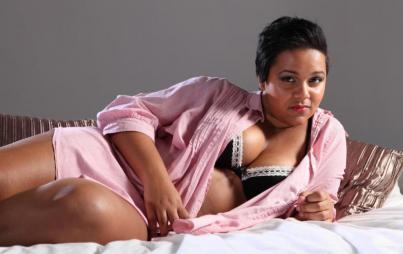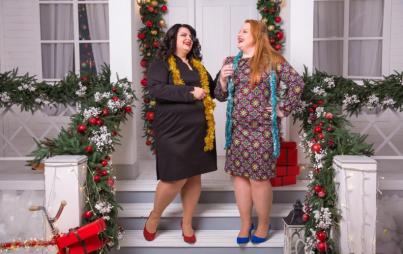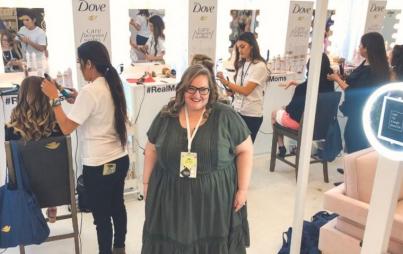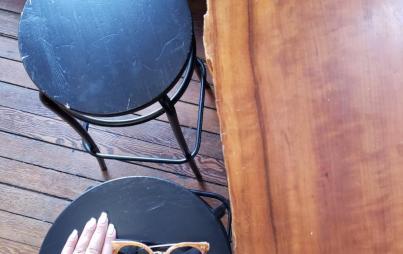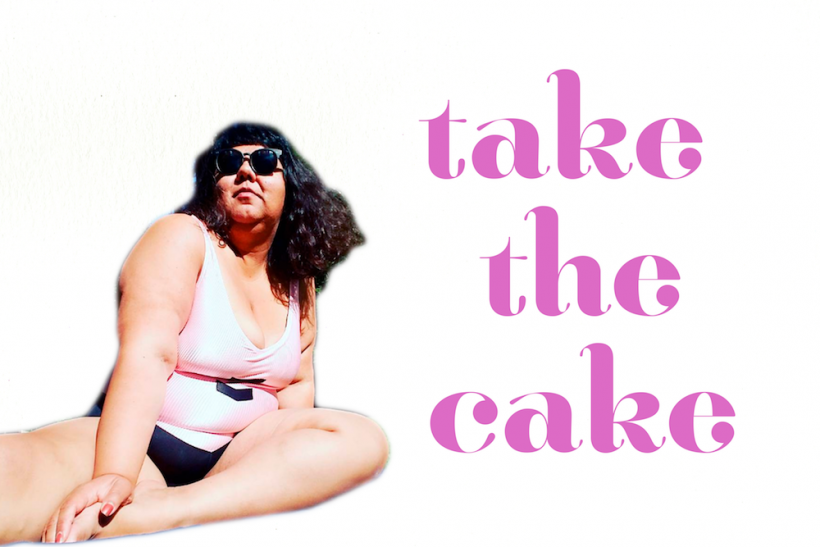
When I was a little girl deep in her body image trauma, I dreamed of being sent away to “fat camp.” After my violent introduction to fatphobia at the age of five, most of my dreams centered around transformative experiences that began with the jiggly body I had and ended with the taut body I was supposed to have. In my fat camp fantasy, I imagined arriving a big girl and leaving a small one, with a gaggle of newly minted thin girl friends and maybe even a boyfriend. We would all be closer because of our shared experience, but our secret would remain safely sealed in the past forever after we left our idyllic, sweat-soaked sojourn in the wilderness.
My mind conjured images of scenes from the 1961 film The Parent Trap and Addams Family Values.

There was no way in hell my family was ever going to send me to a sleep away camp. We were on a tight budget, but more importantly, they were convinced that murderers, atheists, kidnappers, nudists, and marijuana smokers were around every corner. I was not even allowed to walk by myself to the mailbox 400 feet from my front door. They wanted to protect me from harm, but they didn’t see the soul-crushing reality of the culture they extoled.
They couldn’t have imagined that the things that endangered me most were the damaging ideas I was learning every day about how I looked, the worthiness of my body, and what I could expect from the world as a girl (answer: not much). I was getting these ideas from my friends, my teachers, and from the movies I watched after school.
Fast forward to 2017.
I just spent the weekend at adult Fat Camp — admittedly, a very different kind than I used to dream about all those years ago. I spent four days and three nights in the Oregon woods, about 40 minutes outside of Eugene with about a dozen other fat people. Fat Affirmative Tactical Camp — F.A.T. Camp — is for fat-identified, fat positive people who come together to build community, share tactics for ending fat oppression, eat a bunch of delicious food, hang out in cabins, sleep in bunk beds, roast marshmallows, and relax in the woods.
We should all get to feel like this every day. This culture is our culture, too.
The experience led to a series of realizations. To begin with, packing for adult FAT Camp was unlike my regular packing experience. I noticed that I had a lot more room in my suitcase than usual. I knew that I wouldn’t have to censor my outfits for my emotional safety, and so I forewent carefully choosing looks that would ward off attention. I could be my full fat self without concern for being scrutinized, stared at, made fun of, offered unsolicited praise for my “bravery,” or non-consensually/predatorily sexualized. The truth is that all I want to wear all the time is tiny shorts, bikinis, and huge earrings. That’s it.
You Might Also Like: Take The Cake: 4 Reasons To Free Your Arm Fat
When I was deep in my internalized fat hatred during my dieting years, I would not wear these things because I felt an acute sense that I did not deserve to wear them. Now that I’m a fat positive feminist, I often don’t wear these things because the judgment, leering, fear of being photographed, commenting, dehumanization, and defensiveness that I have to juggle are just too much work.
It is actually exhausting trying to be my authentic self in public in a fat body.
I relish the opportunity to be complex, relaxed, sexy, smart, disarmed, and — above all — comfortable, but I don’t live in a culture that affords me that.
Upon arriving, I settled into the feeling of being surrounded by fat people. We don’t share all the same experiences, but we share enough to know how valuable this space is. To me, this is what it feels like to be at home in my body. I got on an airplane and sat in a car for almost three hours to have access to this feeling.
There a hundred little things that make this magical — the way it feels to go for an intrepid hike in the woods without the sense that I am being judged for my speed or what my body looks like while I’m climbing or running or breathing heavily; the way it feels when I can eat without worrying that someone is watching me and gaining a sense of superiority from witnessing my consumption; how nice it feels when everyone around you has a double chin; the inside jokes; the intimacy. It’s just all the little moments that we got to share without a sense that there were bigots closing in on us.
I’ve found that this feeling only happens when we get to create our own spaces, often far from others. The sacredness feels both special and heart-breaking.
We should all get to feel like this every day. This culture is our culture, too. It takes considerable resources – financial, emotional, physical, and spiritual – to be able to access these spaces. Further, we shouldn’t have to commute in order to feel fully human.
On the final day of camp, I noticed the outfit I had set out the night before. I had unconsciously put together the most conservative outfit I’d worn in four days. I was dressing defensively for my re-entry into the thincentric world. When I began to pack my suitcase, I was amazed again by how much space there was in it. I realized how meaningful that empty space was to me. I imagined the things I had room for since I hadn’t had to use every inch of real estate for unnecessary fabric meant to shield me from a hateful culture. Maybe bigger earrings or a stack of zines on how to punch patriarchy in the face, or 18 balls of yarn so I could knit stuff that would strengthen my friendships.
Likewise, I realized how much I longed for that space in my life. I imagined how much room I’d have spiritually and intellectually if I didn’t have to spend part of every day trying to defensively navigate fatphobia.




